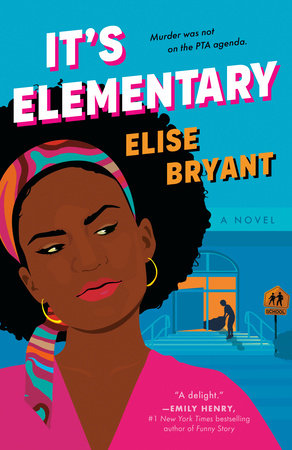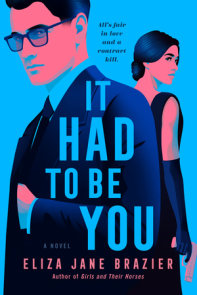READERS GUIDE
Reader’s GuideIt’s Elementary by Elise Bryant
Discussion Questions:
1. Mavis has proudly “mastered the swift, no-small-talk drop-off.” Why is she so reluctant to interact with the other parents at Knoll? If you have kids, do you avoid eye contact like Mavis, or are you a card-carrying member of the PTA?
2. Throughout the book, we see all the work that Mavis does at night, after Pearl goes to sleep. Can you relate to this “second shift”? Is this labor respected and valued in our society?
3. Mavis is constantly worried about being seen as a Bad Mom, and she makes many decisions based on how she’ll be perceived by others. Do you worry about getting the Bad Mom label, too? Do moms hold themselves (and other moms) to unfair standards?
4. After being out of the dating game for a while, Mavis makes an instant connection with Jack. Why is she so drawn to him? Is he a good partner for her? What do you predict will happen now that Corey has reentered the picture?
5. Mavis complains about how DEI roles and responsibilities are often delegated to Black women. She describes it as “free labor to be given willingly to fix problems that we didn’t create” and “exhausting work—trying to prove to everyone else that you and your kids belong.” Do you agree or disagree with Mavis? Should Black parents be responsible for this work in the school setting?
6. The controversy over the gifted program at Knoll and Trisha’s reaction show how these classes and programs can sometimes serve as a status symbol for parents. Does a kid’s placement in a gifted program actually reflect on the parents? Are gifted programs fair and beneficial to all kids?
7. Even though Mavis is unhappy at Project Window and has been passed over for a promotion she thinks she deserved, she doesn’t make any moves to find a new job. Why do you think she is scared to leave? What do you think she should do?
8. Pearl doesn’t ask for help with her bullying problem because she observes Mavis not asking for help with her own problems. Which patterns do you see repeating from your parents? Or with your own kids? How do we make sure our kids don’t pick up our worst habits?
9. Mavis’s father reminds her of the Gwendolyn Brooks quote “We are each other’s business.” Do you agree with this? We see how gentrification is changing Beachwood from the city Mavis grew up in. What does this do to the sense of community? Do people still make each other’s business their own?






















